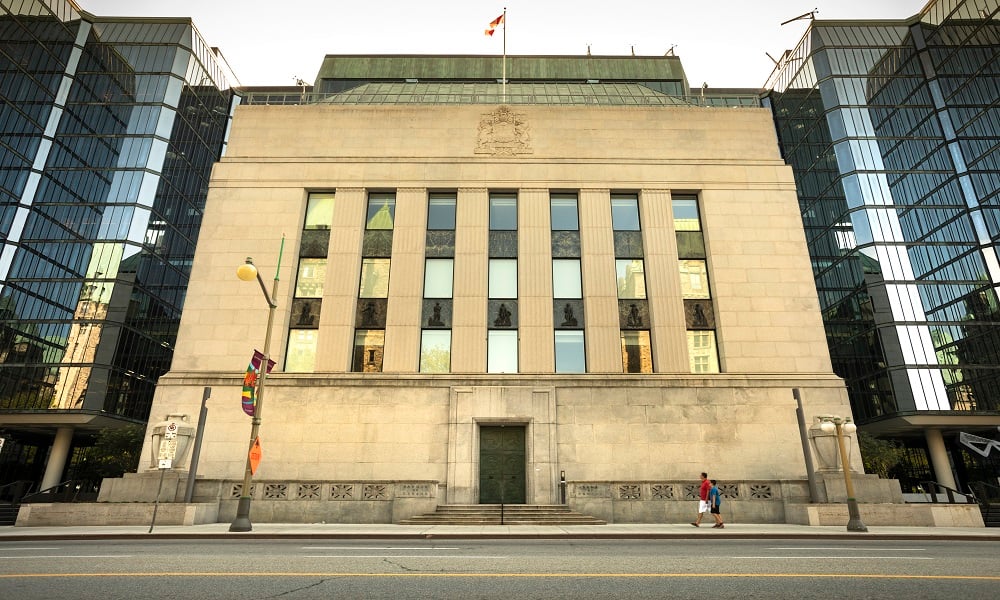Forecasters predict inflation's drop will push the Bank of Canada toward more aggressive rate cuts

Amid signs of slowing economic growth and easing inflation, many analysts expect the Bank of Canada to continue its interest rate cutting strategy.
Chris McHaney, EVP and head of Investment Management and Strategy at Global X Investments Canada Inc., gave his opinion to Wealth Professional, predicting that the Bank of Canada will lower its policy rate by 0.50 per cent this week.
This comes after three consecutive 25-basis-point cuts. McHaney highlighted that while core inflation remains sticky at 2.3 per cent, overall inflation has dropped to 1.6 per cent.
He noted that momentum for a more aggressive rate cut is growing, particularly in light of recent US Federal Reserve actions, which saw a 50-basis-point cut.
McHaney further stated, “Economic growth in Canada has been much slower than in the US, with GDP growth prints at 1.5 per cent year-over-year or lower since March 2023.”
He added that the Bank of Canada is particularly sensitive to the interest rate environment due to upcoming mortgage renewals in 2025 and 2026.
Ashish Dewan, investment strategist at Vanguard Canada, told Wealth Professional that he expects the central bank to reduce rates further.
He projected that “softer growth, easing inflationary pressures and a weakening labour market” make a strong case for more cuts.
Dewan also expects below-trend GDP growth for the year, adding that the labour market is at risk as population growth has outpaced job creation.
BNN Bloomberg reported that forecasters widely expect the Bank of Canada to cut its policy rate by half a percentage point this week, aligning with these predictions.
Nathan Janzen, assistant chief economist at RBC, told BNN Bloomberg that the latest inflation data reinforces the need for a more substantial rate cut.
Janzen explained that with inflation below the Bank of Canada’s target, the economy is struggling more than necessary to control inflation, suggesting the central bank needs to act swiftly to prevent stalling economic growth.
The Bank of Canada has already lowered its key interest rate to 4.25 per cent, following three rate cuts earlier this year.
However, despite these reductions, Canada’s GDP per capita has shrunk for five consecutive quarters, and the unemployment rate in September climbed to 6.5 per cent, a full percentage point higher than the previous year.
Economist Carl Gomez from CoStar also weighed in, telling BNN Bloomberg that Canada’s real interest rates, adjusted for inflation, are higher than other countries, which is exacerbating the slowdown.
“We are dealing with a far weaker economy in Canada than the United States,” Gomez remarked, adding that this further justifies more aggressive cuts by the central bank.
With the housing market also facing challenges, Gomez pointed out that while listings have risen, demand remains sluggish, keeping prices down.
Lower interest rates are expected to improve affordability, but high unemployment among younger populations continues to weigh on demand, particularly for first-time homebuyers, according to Janzen.
The Bank of Canada’s next interest rate announcement, accompanied by its quarterly monetary policy report, is set for this Wednesday, when new economic forecasts will be revealed.



